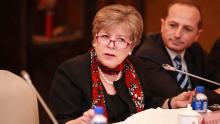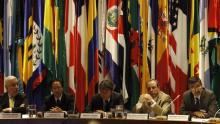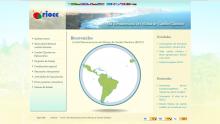News list
Search results
Showing 561 to 580 of 793 results in 40 pages.
26 March 2015 | News
23 March 2015 | Press Release
22 March 2015 | Statement
21 March 2015 | Statement
13 March 2015 | News
9 de February de 2015 | News

6 de February de 2015 | News
23 January 2015 | Press Release

12 January 2015 | News
8 de January de 2015 | Announcement

12 December 2014 | News
10 December 2014 | Press Release
10 December 2014 | Press Release
9 December 2014 | Announcement
5 December 2014 | News
4 de December de 2014 | Infographic
4 de December de 2014 | Infographic
4 de December de 2014 | Infographic
4 de December de 2014 | Infographic